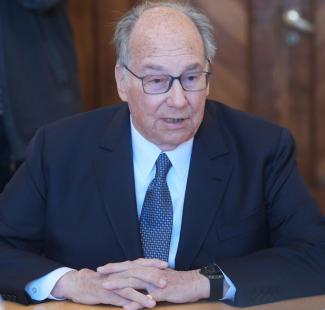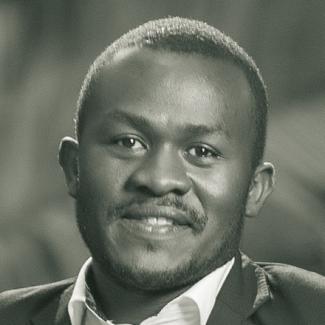Faith-based initiatives
Helping families to escape the cycle of poverty

In a grainy video from 1957, a man of 20 years age is escorted to the throne, crowned and made the leader of what today is a vast community of an estimated 20 million Ismailis, a branch of Shia Islam. The youngster went up to the throne as Prince Karim al Husseini Shah and came down as His Highness the Aga Khan IV.
He is an unusual monarch in the sense of not having a geographic realm. His personal fortune is kept secret. Forbes estimated it at $ 800 million in 2010. Today, his nationality is British, his background is South Asian and he lives in France. Passed on to his young shoulders in 1957, was not just a title but also a ton of responsibilities that were initially defined by his grandfather.
Today, the impact of his tenure and his work dots every sector of society in nearly 30 countries. The Aga Khan Development Network (AKDN) and the Aga Khan Foundation (AKF) are important institutions. They are difficult to describe in one word or one sentence. Philanthropy doesn’t quite fit, nor does entrepreneurship. Social enterprise comes close. The Aga Khan frowns upon such framing because it doesn’t tell the whole story.
The Aga Khan’s mission includes setting up clinics, hospitals, banks, universities, schools and even programmes in agriculture, food security, economic inclusion, microfinance and the empowerment of civil society. His approach to development is multidimensional. The AKDN is a major stakeholder in the Serena Hotels for example. Moreover, the Aga Khan founded what became the Nation Media Group in Kenya. Among other things, it publishes leading East-African newspapers such as The Daily Nation in Kenya and The Daily Monitor in Uganda. More recently, the Aga Khan founded a journalism school in Kenya.
According to Sam Pickens, a spokesperson of the AKDN, the following quote is a succinct explanation of his top leader’s motivation: “This work is for us a part of our institutional responsibility – it flows from the mandate of the office of imam to improve the quality of worldly life for the concerned communities.” This is what the Aga Khan said over a decade ago when he was given the Tolerance award at the Evangelische Akademie Tutzing, a Protestant institution in Bavaria. He only rarely speaks or merely appears in public.
He has certainly always emphasised quality. “It is easy enough to send everyone to school simply by building more classrooms; it is much harder to see that all the students are more than half educated,” the Aga Khan said barely six months after ascending to the throne. “A school with unqualified teachers is like a shoe without a sole, and a school with qualified teachers and unresponsive students is like a shoe without laces. Both are deficient.” Right from the start, the Aga Khan pointed out that “it would be wise to devote more time to recruiting and producing highest qualified staff”.
Reading a list of the countries where Aga Khan institutions operate is like perusing the countries where life is hard, poverty is dire and more help is needed. There’s Afghanistan, Bangladesh, Egypt, India, Kenya, the Kyrgyz Republic, Madagascar, Mali, Mozambique, Pakistan, Portugal, Russia, Syria, Tajikistan, Tanzania and Uganda. According to Pickens, the foundation’ s goal “is to bring together the required human, financial and technical resources to assist the poorest and most marginalised within strategic geographies, especially women and girls, such that they achieve a level of self-reliance and improved quality of life”.
Pickens points out that the AKF believes that the cornerstones of thriving communities include reliable hospitals, schools, community centres and flourishing economies. Equally essential are informed and engaged people who have the space and collective power to shape their own futures. Lacking in environment marked by these things, families will “remain in the cycle of poverty, clinging to limited government services and dependent on short-lived aid”. Pickens says the foundation is “determined to support communities to break this cycle”.
Agenda of empowerment
An interesting aspect of the Aga Khan approach is the emphasis on letting the people and the communities take charge of the programmes. This is perhaps the reason why the foundation says it is able to achieve much with “a small staff, a host of cooperating agencies and thousands of volunteers”.
The AKF focuses on bolstering rural development, health, education and civil society. In Kenya, Uganda and Tanzania, this dovetails perfectly with elusive independence-era visions of fighting disease, hunger and illiteracy. To some extent, it steps in where state agencies are absent or fail the people. Not least because of population growth, exclusion and marginalisation remain serious challenges in East Africa however.
The Aga Khan promotes secular pluralism even though he is a faith leader. It probably plays a role that Ismailis are a religious minority and have all too often suffered persecution themselves. He is, however, a sponsor of Muslim architecture.
The Aga Khan does not fund all activities from his personal fortune. A large share of the money is generated by the businesses his group is involved in. The AKF and AKDN often cooperate with other development agencies, most of which appreciate the Aga Khan’s excellent reputation. The AKF also runs fundraising campaigns in North America and Europe and has “resource mobilisation offices” in Canada, the UK and the USA.
Shafik Sachedina coordinates Ismaili institutions on behalf of the Aga Khan. He says that his boss does not think in terms of days or months, but rather generations. “To have impact on the quality of life of people requires that you stay with this issue until you are able to take out poverty and degradation,” Sachedina once told a TV team. “It is not a quick fix solution.”
Alphonce Shiundu is a Kenyan journalist, editor and fact-checker and is currently a Chevening Scholar studying Media and Development at the University of Westminster in London.
shiunduonline@gmail.com








